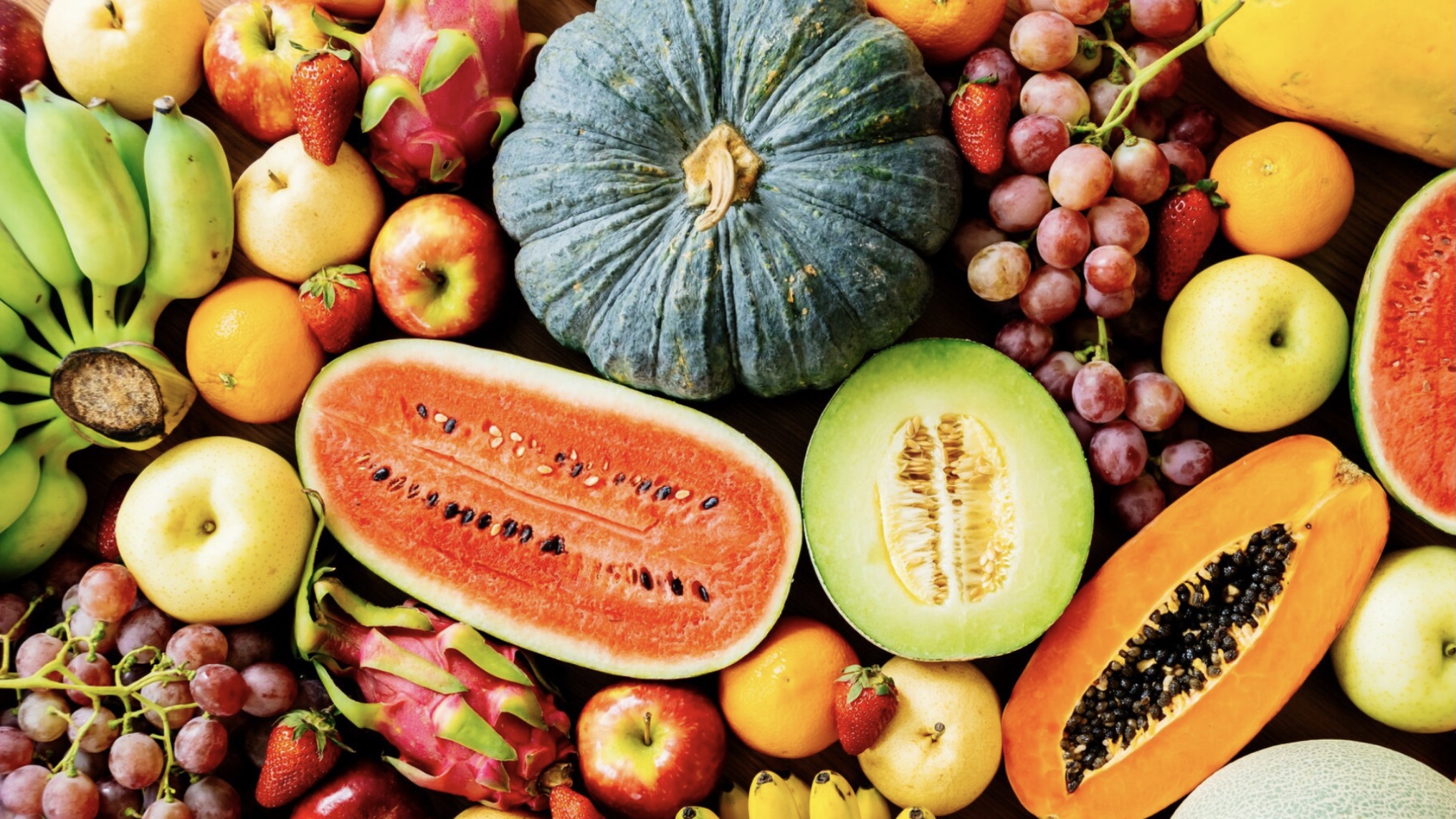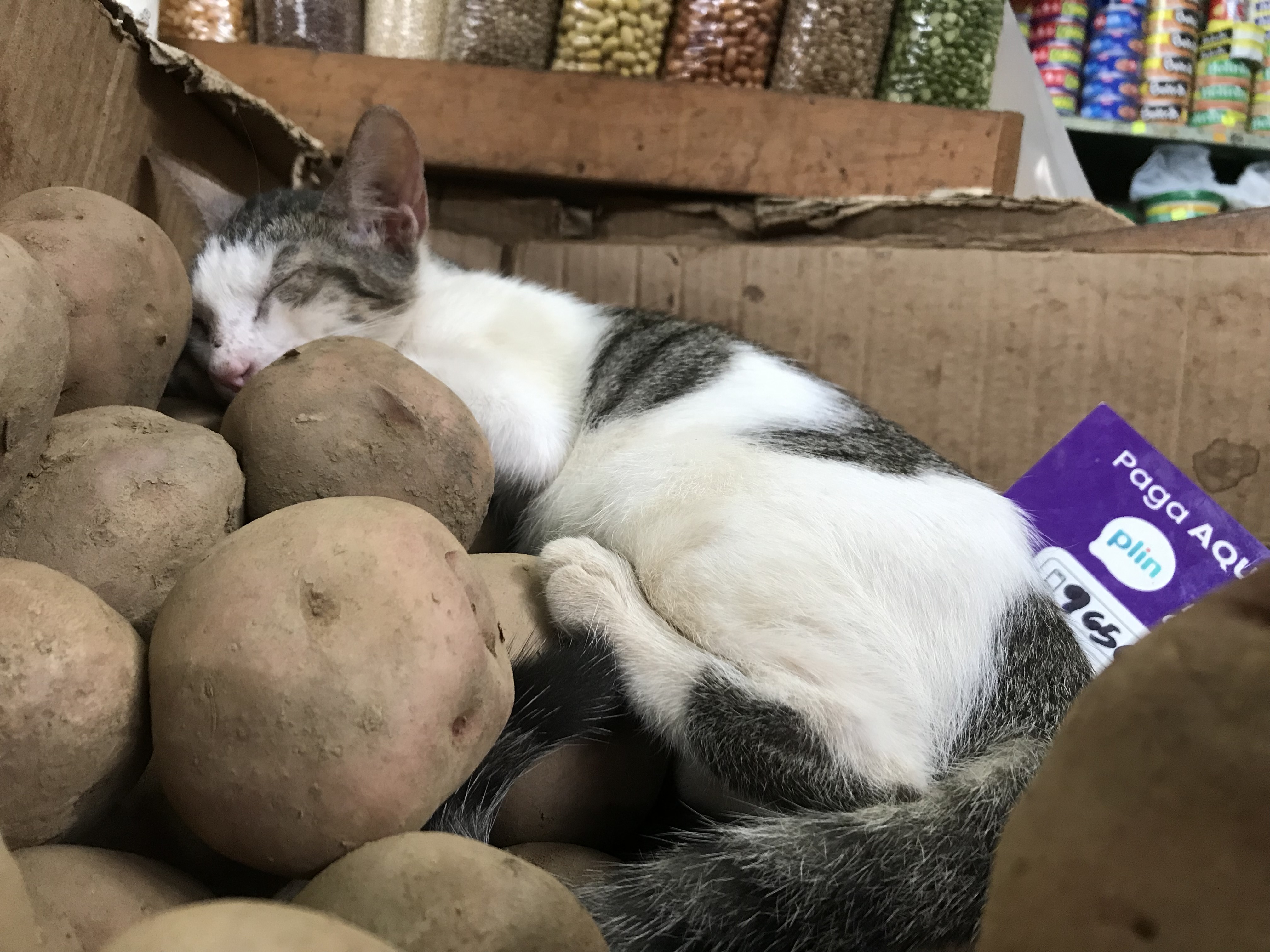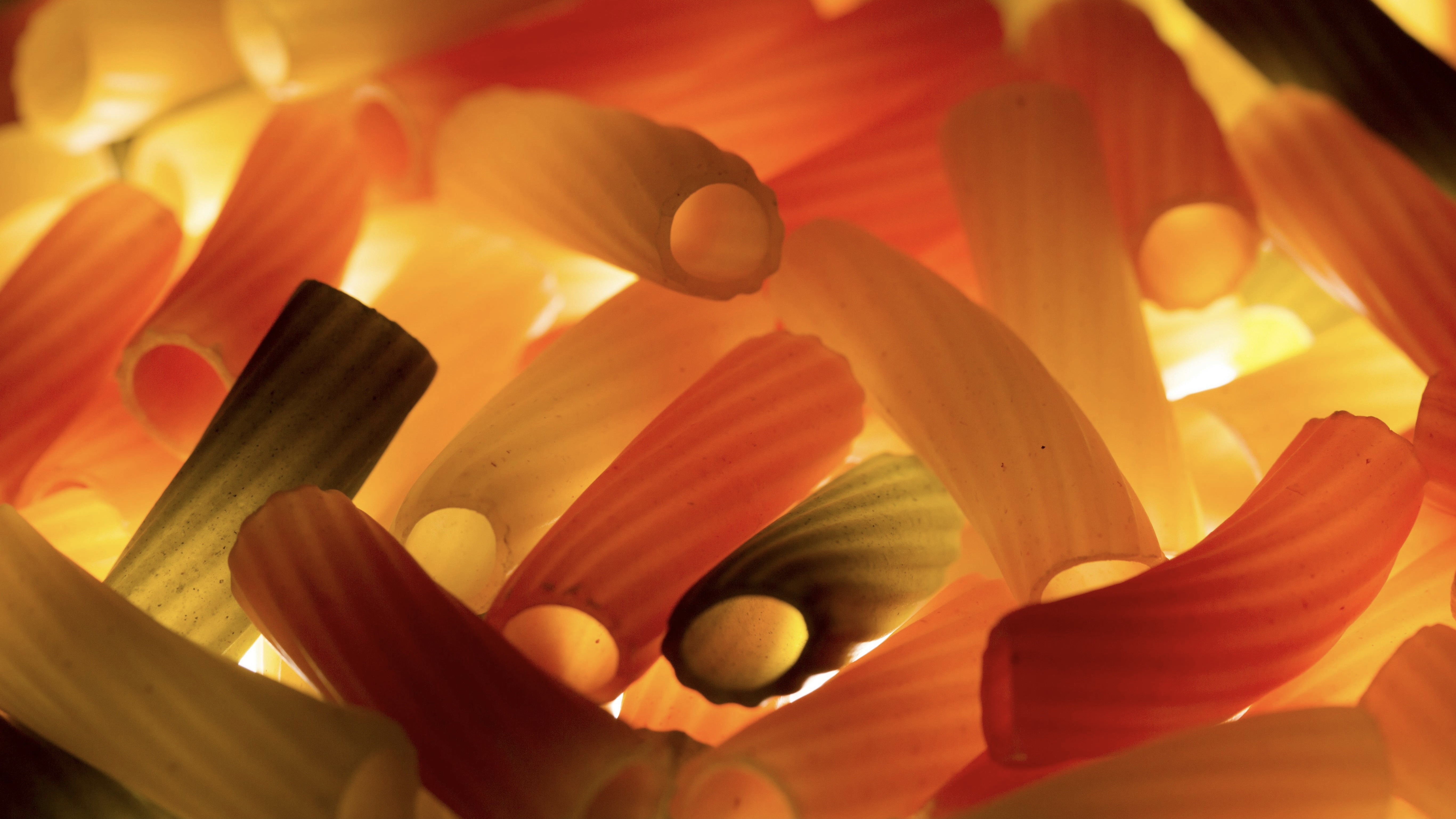
Our foods are made up of many different components. We can roughly put them in these categories: phytonutrients, vitamins, minerals, water, fibre, fat, carbohydrates, protein, and even natural toxins exist in certain foods. We need these (except the toxins, of course) in different amounts and for different reasons. We often associate them with a certain effect: fat and carbs cause obesity, sporty people love proteins, fibre makes you poop, etc. However, proteins do much more than build muscle. Also, fats and carbs don't just make us fat. In the right amounts, they actually do us a lot of good. So, what do they do then? Let's find out! We'll start with the bulk nutrients: carbs, protein, fat, and fibre.
Carbohydrates
Carbs are sugars and starches and are mainly made up of the elements carbon, hydrogen, and oxygen. More complex forms can also contain phosphorus, nitrogen, and sulphur.
Monosaccharides
Monosaccharides are the simplest carbs; they are simple sugars like glucose, fructose and galactose. Two monosaccharides chemically bound together form a disaccharide. Examples are sucrose, maltose, and lactose. More than 2 bound together into a complex molecule are called polysaccharides. They are substances like starches, inulin, glycogen, and cellulose.
Glucose
Glucose is an important source of energy for the body. The body can also use protein and fats; however, these first need to be converted to glucose before they can be turned into energy that the body can use.
That's why the body always aims to have a certain level of glucose in our blood, ready for use. When there is more glucose than the body needs, the liver converts it into glycogen and stores it.
White sugar
Our famous and not-so-healthy white sugar is sucrose. It comes from sugar cane and beets. It breaks down into glucose and fructose, 2 monosaccharides that naturally also exist in fruits and veggies.
Lactose intolerance
Lactose is a milk sugar. In our intestines, it gets broken down into glucose and a sugar we call galactose. Many people are what we call lactose intolerant because they do not have a lot of lactase, which is the enzyme that breaks down lactose. As we age, we also start to produce less lactase. That's why some people become lactose intolerant later in life.
When we have little lactase, the lactose that we consume does not get digested properly. It ends up in the large intestine, where it is only partly digested and becomes dinner for bacteria. These bugs start to ferment the lactose, which produces gases like hydrogen, methane, and carbon dioxide. The indigested lactaso also attracts water. Together, the water and gas can produce bloating, diarrhoea, farts, and pain—lactose intolerance.
Polysaccharides
Not all of the polysaccharides can be fully digested by humans, and these are what we call fiber. Fibres are actually carbs.
Glycogen, another polysaccharide, is glucose in storage form. The liver generates it from the surplus of glucose in our body and stores it within itself and in the muscles. All animals make this substance, and when we eat meat, we ingest glycogen.
Our digestive system breaks down glycogen into glucose so it can be used. This counts for the other digestible carbs too; they all need to be broken down into monosaccharides before the body can use them.

Potatoes are carb-rich foods, they contain starches. A moderate sized potato (150 grammes) contains about 30 to 35 grams of carbohydrates.
Function in our bodies
Carbs are thus a very important source of energy for our body. Especially our brain and muscles really rely on it. Besides this, carbohydrates have some other very important functions.
The cement between our cells
Our individual body cells are held together by a substance that is made of protein and carbs. You can kind of imagine this as cement between bricks in a building. It is called the extracellular matrix and holds the cells of certain tissues together, and it also aids communication between cells and supports their repair processes.
Cartilage
Cartilage also has a good level of carbohydrates. It functions like a cushion between the bones in joints, making movement easier. In our spine, it helps support weight, and it shapes the outer parts of our ears and nose.
Blood group
Carbohydrates are also crucial to determining which blood group we have. Our red blood cells have antigens on them that are composed of glycogens, substances made of protein and carbohydrates. The structure of that carb part determines what blood group you belong to.
Carbohydrates can be turned into fat
And, carbs can form fat. When we have a surplus of sugars (carbs), the liver will store some of it as glycogen for later use in the muscles and in the liver. But storage capacity is limited. Depending on your body size and muscle mass, you can keep between 100 and 120 grammes in your liver and 400 and 500 grammes in your muscles. When that limit is reached, carbs get converted to fat and stored in your adipose tissue.
Living without carbs
If, from now on, you never eat carbs again, then your body would have to spend more energy to generate energy. Over time, some serious issues might start to occur as the cells of your tissue will miss the carbs that hold them together. Also, your joints and spine will suffer because carbs are an important component of cartilage.
We cannot do without carbs; however, we should also not eat too much of them, especially not at once. Eating a lot of carbs messes up your blood sugar balance and can lead to serious issues like diabetes.
Upcoming posts
This post is part of a series covering the main nutrients in our food. We’re going to have a look at what carbs, proteins, fats, fibre, minerals and vitamins do in our bodies and thus get to know why we need them. Next week there will be an new post to read! Until then, take care!

Pasta! Very tasty, just don’t eat too much of it. I love this picture! It’s by Pixabay posted on Pexels.
Cover image by Lifeforstock on Freepik.
Congratulations @mirjamsvideos! You have completed the following achievement on the Hive blockchain And have been rewarded with New badge(s)
Your next target is to reach 2000 upvotes.
You can view your badges on your board and compare yourself to others in the Ranking
If you no longer want to receive notifications, reply to this comment with the word
STOP